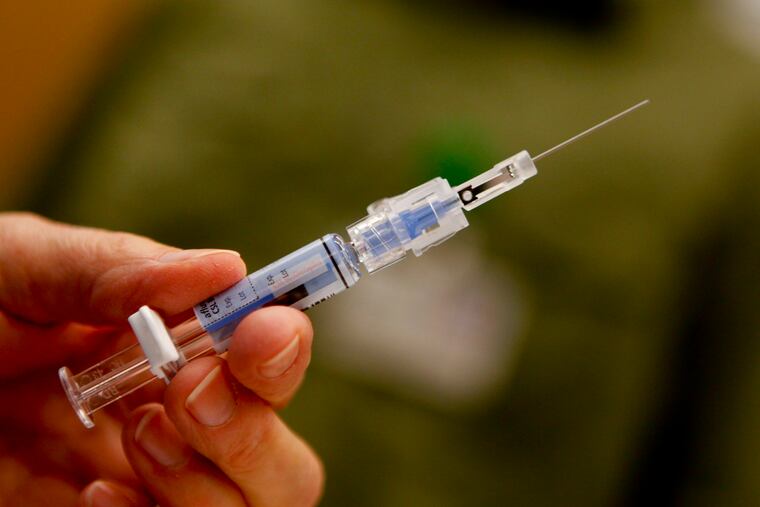Flu shots help save lives. Why don’t more people get them?
A new survey found that half of all U.S. adults do not get the flu shot even though they are aware it is the best protection against the virus.

Most American adults know that the best protection against influenza is a vaccine, but about half will not get their annual flu shot, according to new survey.
The National Foundation for Infectious Diseases (NFID) commissioned the survey to get a better handle on the public’s attitudes and practices when it comes to getting a flu shot and the vaccine for pneumococcal disease, which protects against the more serious forms of bacterial pneumonia.
The survey garnered 1,002 responses— 916 via the web — from adults over 18 in 50 states and the District of Columbia, according to NFID.
The group found that nearly a quarter of U.S. adults who are over age 65 or who have health conditions that put them at greater risk for flu-related complications — such as asthma, diabetes, or heart disease — do not plan to get the vaccination.
About 51% of adults do not think the vaccine works, 34% are worried about side effects, and 22% believe they may get the flu from the vaccine, the survey found.
» READ MORE: Pennsylvania child dies of the flu
The U.S. Centers for Disease Control and Prevention estimates that flu vaccination coverage has increased over the last decade. An annual flu vaccine is recommended for everyone over 6 months of age.
Even so, the 2017-18 flu season was particularly bad. The CDC estimated the flu was associated with more than 48.8 million illnesses, 22.7 million medical visits, 959,000 hospitalizations, and 79,400 flu-related deaths. There were 183 deaths in children reported to the CDC.
The 2018-19 season was not considered as severe. There were a total of 135 influenza-associated pediatric deaths reported to CDC.
One notable finding in the survey was that about 60% of adults at greater risk said they were never advised to get a vaccine for pneumococcal disease.
More outreach to health-care providers to make sure they talk to patients about the available vaccines is needed, said Daniel B. Jernigan, director of the influenza division in the national center for immunization and respiratory diseases at the CDC.
“We know if providers asked patients [about getting the vaccine] it was extremely influential,” he said. “If they have it in the office the coverage goes up even higher."
What health officials are also finding is that there is not just one reason to explain reluctance over the immunization, Jernigan said.
People have different reasons and understanding those differences is part of the solution, he said.
Even though there is currently not a lot of flu going around, October is the best time to get a flu shot, said Jernigan.
It takes about two weeks for antibodies to develop sufficiently to protect you. An annual vaccination is needed both because your immunity wanes over time, and because the vaccine is reformulated every year to match the strains of viruses expected to dominate the season, according to the CDC. Some years, the predictions are better than others, which can account for why the vaccine’s effectiveness varies from year to year. Infectious-disease experts agree that even if a vaccinated person gets the flu, symptoms are likely to be less severe than they would have been if they’d skipped a shot.